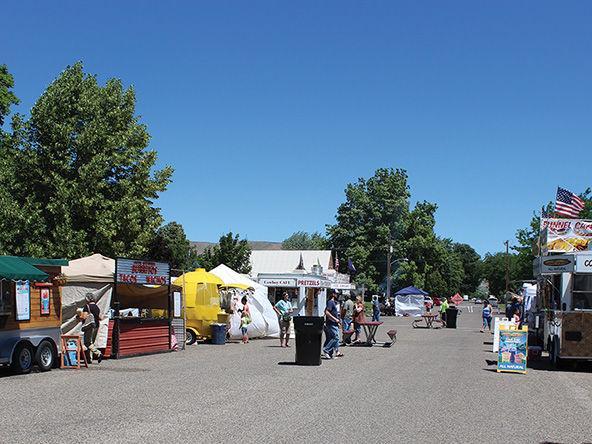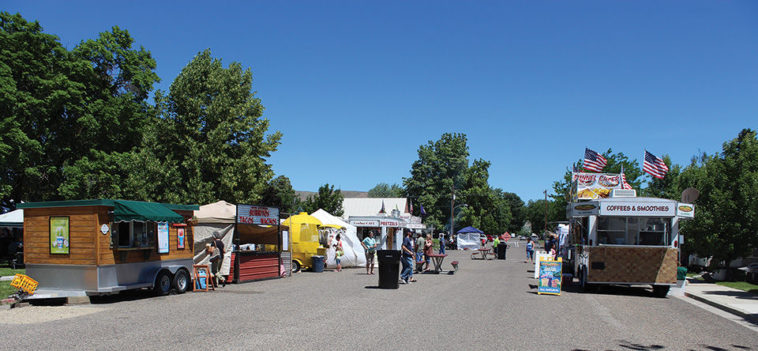What goes into approval of mobile food carts? – Ontario Argus Observer

PAYETTE COUNTY — What does it take to get approval to operate a mobile food establishment in Payette County, or even in the state of Idaho? As such establishments continue to steadily gain popularity in the Western Treasure Valley, the newspaper reached out to public officials of several regulatory bodies to find out.
City approval
As one example, Fruitland resident Terrence Fisher appeared before the Payette City Council on June 7 to ask for approval for his hot dog stand, named Updog Street Food & Catering, to operate on Main Street.
To qualify, Fisher submitted proof that Kent Burns, owner of the Broken Halo Barber Shop, approved of using his utilities for foodservice purposes, and proof of $1 million liability insurance. As part of that approval process, the council had to vote to approve a business license for him.
In an email on June 11, Payette Police Chief John Plaza said his department shares food cart enforcement with health authorities.
“The police would enforce the business license side of the permit and if there were suspected health violations would ask for assistance through the health district,” wrote Plaza.
Cities around the state have their own forms and approval process, including the city of Boise where Fisher has previously operated.
Noteworthy is that under Payette City Code 5.15.030 and 5.16.040, applicants must submit “Credentials from the person, firm or corporation for which the applicant proposes to do business, authorizing the applicant to act as such representative” including a background check and/or applicable information about the operator, as deemed necessary by the city clerk to protect public safety. This was amended by Ordinance 1316, effective June 7, 2010.
Background checks are supplied by Idaho State Police. In an email Wednesday, communications director Lynn Hightower stated “That’s pretty common for business licensing.”
Health inspectors
At Southwest District Health, public information officer Ashley Anderson notes that her department has additional approval processes Fisher and other mobile food vendors must go through before selling hot dogs and such.
“As the Health District, it is our job to ensure safe food is served to the community. Idaho uses the Idaho Food Code which lays out the requirements of food carts,” wrote Anderson in a June 17 email. “Food vendors are required to submit their structural and operational plans, called a plan review, before they are able to apply for licensure. An [Environmental Health Specialist] will review the plans to ensure it meets the Idaho Food Code. After the plan is approved the operator can then apply for licensure.”
Even then, health specialists have more to do to keep diners safe.
“All new food vendors must have a pre-opening inspection before they are licensed to sell food,” Anderson added. “We ensure the food cart is built in accordance with the Idaho Food Code and that the operator has everything required for the safe service of food. If the facility is in compliance the license will be issued and the vendor can begin operation. Once in operation, we perform random inspections on food operators throughout the year to ensure compliance.”
Published at Sun, 27 Jun 2021 14:00:00 +0000




Comments
Loading…